Shared with Dropbox.
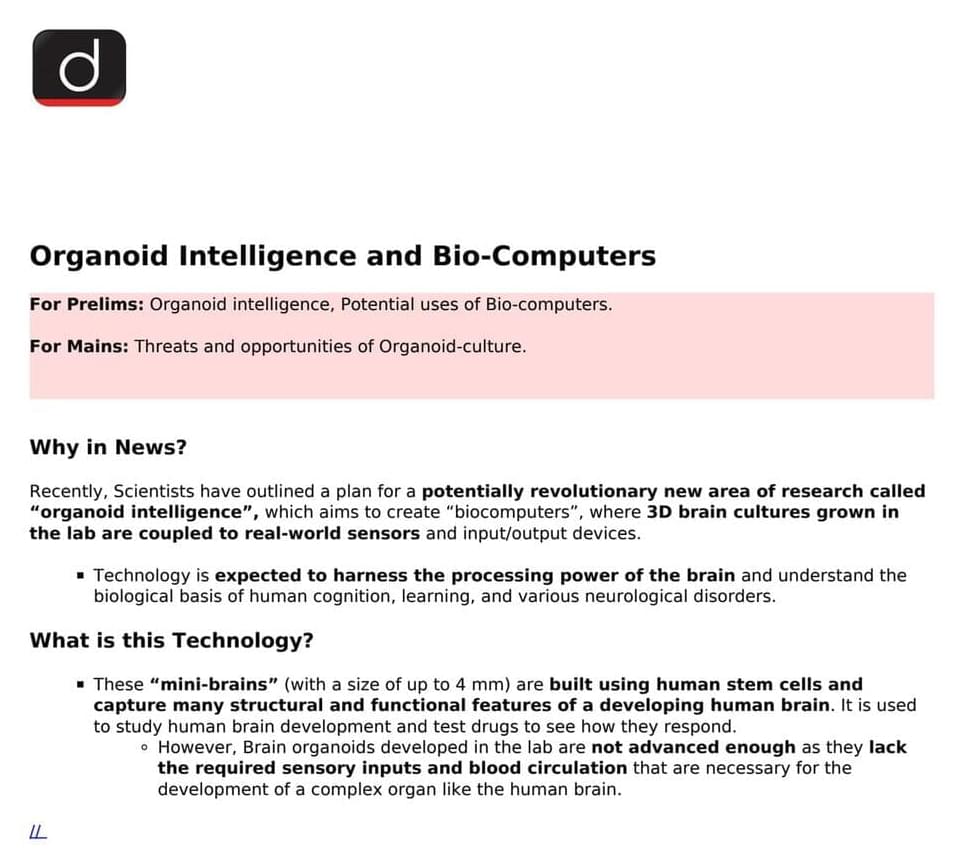

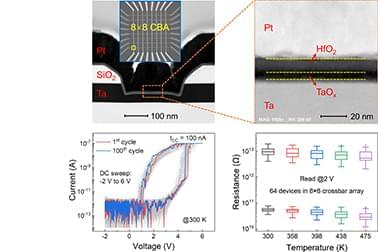
Heat resistant mimresister at room temperature.
Due to the heat generation during operations in high-density three-dimensional (3D) integrated chips, a high-temperature tolerant and high-performance self-rectifying memristor (SRM) is a promising candidate for 3D integration. Here, we investigated the high-temperature characteristics of Ta/TaOX/HfO2/Pt SRMs with a 250 nm feature size in an 8 × 8 crossbar array (CBA). The SRMs exhibit high uniformity and can be operated repeatedly at Set (4 V/2 μs) and Reset (−2 V/1 μs) pulses for more than 104 cycles resulting in ultra-low switching energy (5.86 aJ for Set and 77.2 aJ for Reset). High yield of the array indicates the reliable preparation processes. Remarkably, the CBA is capable of stably resistive switching at high temperatures from 300 to 475 K. At 300 K, the SRM shows large nonlinearity (NL, ∼1.4 × 104) and rectification ratio (RR, ∼8.8 × 103) as well as high scalability (330 Mbit); at 475 K, the NL and RR of the SRM can still maintain above 400, and the scalability still reaches 71 Kbit. Moreover, our SRM passed a high-temperature retention test of over 5 × 104 s at 438 K. Segmented fittings of the I–V curves of the SRM at different temperatures were performed, concluding that large NL and RR attributed to the Schottky barriers at TaOX/HfO2 and Pt/HfO2 interfaces, respectively. Our work furnishes a feasible solution for high-density 3D integrated memristors in high-temperature application scenarios represented by automotive-grade chips.
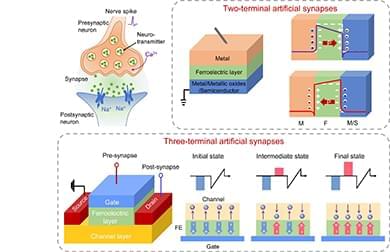
Neuromorphic computing provides alternative hardware architectures with high computational efficiencies and low energy consumption by simulating the working principles of the brain with artificial neurons and synapses as building blocks. This process helps overcome the insurmountable speed barrier and high power consumption from conventional von Neumann computer architectures. Among the emerging neuromorphic electronic devices, ferroelectric-based artificial synapses have attracted extensive interest for their good controllability, deterministic resistance switching, large output signal dynamic range, and excellent retention. This Perspective briefly reviews the recent progress of two-and three-terminal ferroelectric artificial synapses represented by ferroelectric tunnel junctions and ferroelectric field effect transistors, respectively. The structure and operational mechanism of the devices are described, and existing issues inhibiting high-performance synaptic devices and corresponding solutions are discussed, including the linearity and symmetry of synaptic weight updates, power consumption, and device miniaturization. Functions required for advanced neuromorphic systems, such as multimodal and multi-timescale synaptic plasticity, are also summarized. Finally, the remaining challenges in ferroelectric synapses and possible countermeasures are outlined.
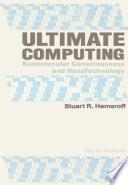
The possibility of direct interfacing between biological and technological information devices could result in a merger of mind and machine — Ultimate Computing. This book, a thorough consideration of this idea, involves a number of disciplines, including biochemistry, cognitive science, computer science, engineering, mathematics, microbiology, molecular biology, pharmacology, philosophy, physics, physiology, and psychology.
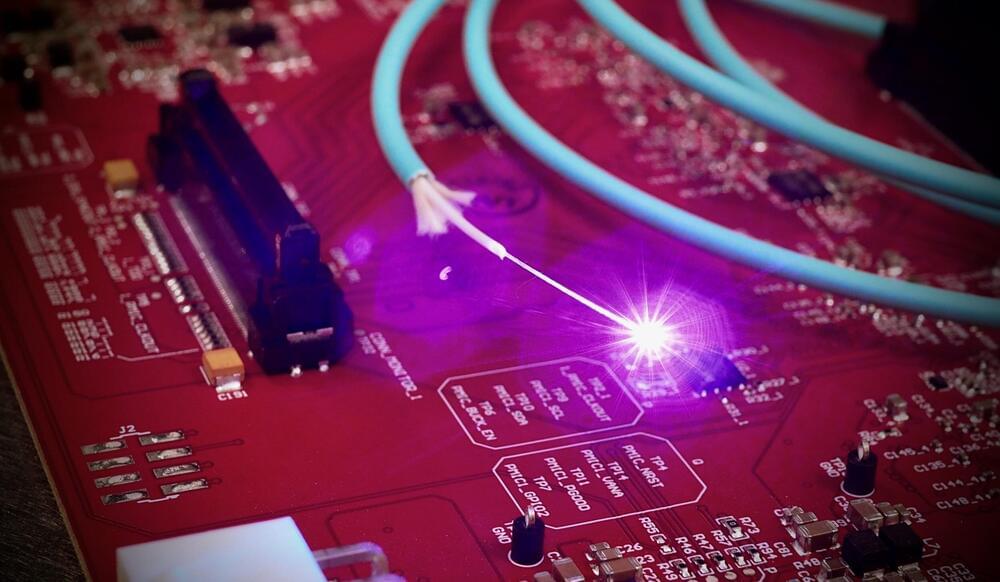
Scientists at Heriot-Watt University in Edinburgh, Scotland, have found a powerful new way to program optical circuits that are critical to the delivery of future technologies such as unhackable communications networks and ultrafast quantum computers.
“Light can carry a lot of information, and optical circuits that compute with light—instead of electricity—are seen as the next big leap in computing technology,” explains Professor Mehul Malik, an experimental physicist and Professor of Physics at Heriot-Watt’s School of Engineering and Physical Sciences.
“But as optical circuits get bigger and more complex, they’re harder to control and make—and this can affect their performance. Our research shows an alternative—and more versatile—way of engineering optical circuits, using a process that occurs naturally in nature.”

“In recent years, the clinical development of liquid biopsies for cancer, a revolutionary screening tool, has created great optimism,” write Liz Kwo and Jenna Aronson in the American Journal of Managed Care.
At present, liquid biopsies can detect more than 50 different types of cancer. A standard visit to the doctor may eventually be able to detect cancers years before they become lethal.
In the future, even the toilet in your bathroom may be sensitive enough to detect the signs of cancer cells, enzymes and genes circulating in your bodily fluids, so that cancer becomes no more lethal than the common cold. Every time you go to the bathroom, you might be tested for cancer. The “smart toilet” might become our first line of defense.
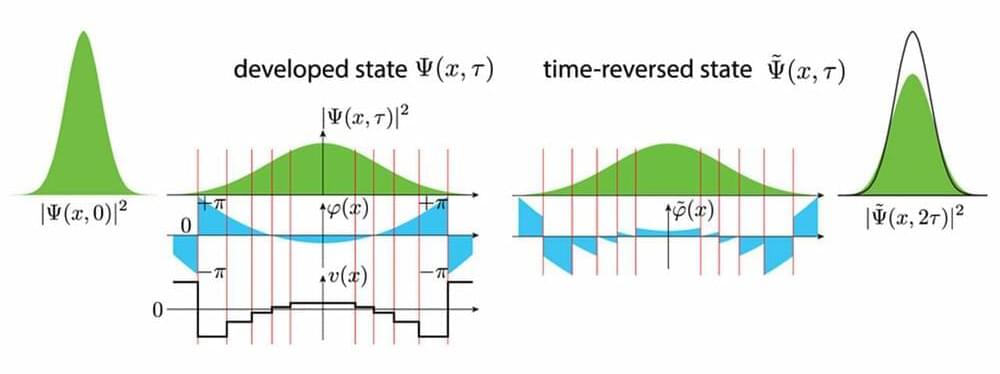
We all mark days with clocks and calendars, but perhaps no timepiece is more immediate than a mirror. The changes we notice over the years vividly illustrate science’s “arrow of time”—the likely progression from order to disorder. We cannot reverse this arrow any more than we can erase all our wrinkles or restore a shattered teacup to its original form.
Or can we?
An international team of scientists led by the U.S. Department of Energy’s (DOE) Argonne National Laboratory explored this question in a first-of-its-kind experiment, managing to return a computer briefly to the past. The results, published March 13 in the journal Scientific Reports, suggest new paths for exploring the backward flow of time in quantum systems. They also open new possibilities for quantum computer program testing and error correction.
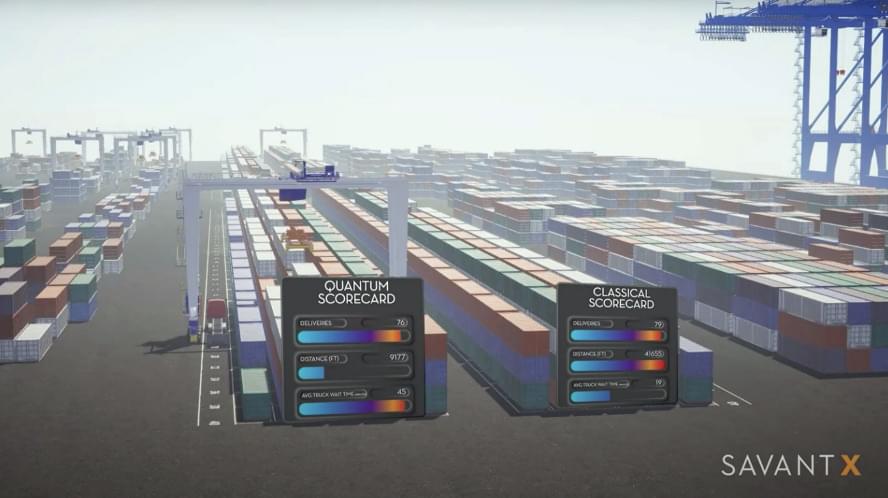
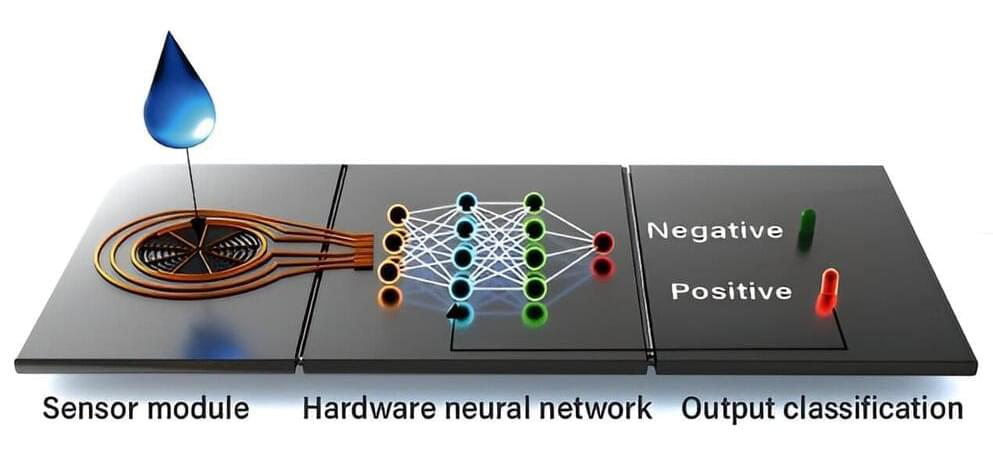
Using a biosensor to detect cystic fibrosis as the test case, TU/e researchers have devised an innovative way to train neuromorphic chips as presented in a new paper in Nature Electronics.
Neuromorphic computers—which are based on the structure of the human brain—could revolutionize our future health care devices. However, their widespread use is hindered by the need to train neuromorphic computers using external training software, which can be time-consuming and energy inefficient.
Researchers from Eindhoven University of Technology and Northwestern University in the U.S. have developed a new neuromorphic biosensor capable of on-chip learning that doesn’t need external training. As a proof-of-concept, the researchers used the biosensor to diagnose cystic fibrosis based on sweat samples.

New observations at the DIII-D National Fusion Facility offer vital insights into energetic ions in fusion plasmas, key for fusion power development and space plasma understanding, with implications for satellite technology.
In a burning plasma, maintaining confinement of fusion-produced energetic ions is essential to producing energy. These fusion plasmas host a wide array of electromagnetic waves that can push energetic ions out of the plasma. This reduces the heating of the plasma from fusion reaction products and ends the burning plasma state.
Recent measurements at the DIII-D National Fusion Facility provide the first direct observations of energetic ions moving through space and energy in a tokamak. Researchers combined these measurements with advanced computer models of electromagnetic waves and how they interact with energetic ions. The results provide an improved understanding of the interplay between plasma waves and energetic ions in fusion plasmas.